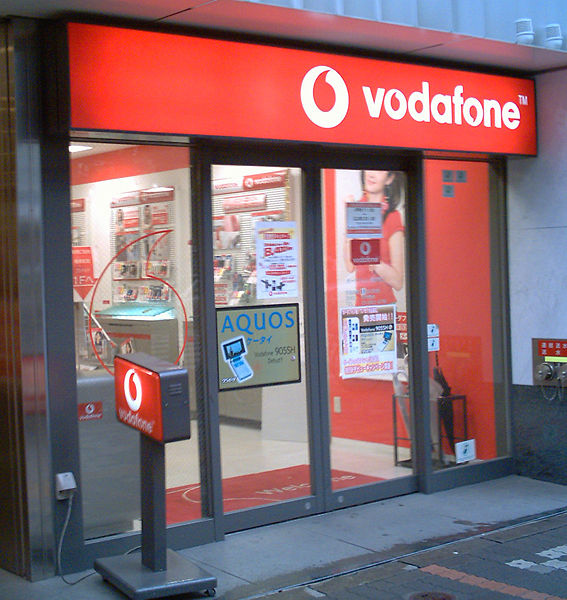Local Corp has just announced that it will be powering this feature for the Microsoft search engine.
The operator of the Local.com search site, Local Corp, has just announced that it will be responsible for providing the geolocation based listings for products and services on the Bing search engine.
The shares of the company skyrocketed on the Nasdaq by 41 percent following the original announcement.
According to the company, the geolocation product listings search feature will be powered by the Krillion shopping data platform which is owned and operated by Local. That platform provides consumers with information regarding local shopping opportunities such as consumer products from retailers. This includes current discounts, comparison pricing, the availability in store, and images.
Geolocation technology is used to make certain that the shopping data is relevant to the consumer’s current location.
 This is helpful to mobile consumers who are looking for products and services that they can purchase at a nearby brick and mortar store location. It also helps to make sure that they will find the best deal in doing so, providing them with options that are available from all of the various shops that carry the desired item within their area.
This is helpful to mobile consumers who are looking for products and services that they can purchase at a nearby brick and mortar store location. It also helps to make sure that they will find the best deal in doing so, providing them with options that are available from all of the various shops that carry the desired item within their area.
This geolocation feature will give Bing the opportunity to provide local search results for consumers that can be refined down to retail stores, brands, and the actual availability of the specific item within a designated store location.
Krillion was originally acquired by Local just over two years ago. The acquisition was clearly a clever one, and it is certain to pay for itself many times over after having been integral to the geolocation results deal between Microsoft’s Bing and Local. Moreover, Microsoft isn’t the only large search engine company that has been involved in a partnership with Local. Google, Inc. is currently Local’s largest partner and was responsible for generating 44 percent of its revenue last year. Twenty one percent of its revenue, last year, came from Yahoo! Inc., another partner. At the moment, the market share in the United States for Google is 67 percent, with another 11 percent belonging to Yahoo! Bing is also on the rise, having risen to its current place at 18 percent over 16 percent at this time last year.
Test launch of mobile commerce platform begins in New Zealand
Vodafone, a global telecommunications organization, is one of several companies in its industry that have been showing aggressive interest in mobile commerce. Consumers are becoming more involved in mobile technology, leading to a growing demand for a more convenient, tech-savvy form of commerce. Vodafone has been working to position itself as a leader in the mobile commerce sector by meeting this demand with its SmartPass platform. The company has recently begun a pilot test for the platform in Auckland, New Zealand, before an international launch later this year.
SmartPass leverages the power of NFC technology
The SmartPass is based on NFC technology and leverages NFC in order to facilitate mobile payments. The technology is quite common in the mobile commerce sector, forming the backbone for the majority of other platforms that could be considered competitors to SmartPass. The platform was developed with the help of Visa, which also has a vested interest in mobile commerce. The pilot launch of the platform is meant to expose consumers to mobile commerce and provide merchants with an effective way to engage mobile consumers.
 NFC-enabled devices still rare among consumers
NFC-enabled devices still rare among consumers
Vodafone expects the pilot launch to last at least two months, hoping to solve some of the undiscovered issues that the SmartPass may have during that time. The company is aware of the low availability of NFC-enabled devices in the consumer market, but does not anticipate this to be a significant problem. SmartPass, like other NFC-based mobile commerce platforms, can only be used by NFC-enabled devices. These devices are becoming more common, but many consumers have shied away from mobile commerce because they are unwilling to purchase a new, expensive smartphone or tablet just to be able to make a mobile payment at a physical store.
SmartPass to function as mobile wallet
The SmartPass is not only able to facilitate mobile payments, of course, as it is also designed to function as a sort of digital wallet. The platform is capable of storing a variety of financial information that could be used by consumers at any given time. Like other platforms, SmartPass is also expected to keep track of special offers that consumers receive from merchants and the brands they are interested in.
 This is helpful to mobile consumers who are looking for products and services that they can purchase at a nearby brick and mortar store location. It also helps to make sure that they will find the best deal in doing so, providing them with options that are available from all of the various shops that carry the desired item within their area.
This is helpful to mobile consumers who are looking for products and services that they can purchase at a nearby brick and mortar store location. It also helps to make sure that they will find the best deal in doing so, providing them with options that are available from all of the various shops that carry the desired item within their area.
 NFC-enabled devices still rare among consumers
NFC-enabled devices still rare among consumers